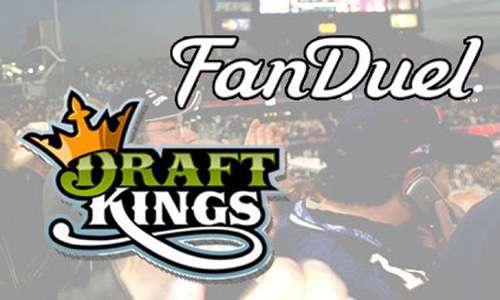DFS Lawsuit Rush Continues
The flood of legal actions taken by consumers alleging various forms of unfair and manipulative practices by daily fantasy sports (DFS) market leaders DraftKings and FanDuel continues to grow, with a new class action filed on Friday being at least the ninth such lawsuit filed in recent weeks.
 The latest lawsuit was filed by Florida residents Antonio Gomez and Ricardo Alejandro Garcia on Thursday, October 15th, and is, like most of the others, a class-action claim naming both DraftKings and FanDuel as defendants. This latest action also names as an individual defendant Ethan Haskell. The besieged Haskell is the DraftKings written-content manager who inadvertently released players-drafted percentages for a major NFL contest before that contest closed, and also during the same week he won a $350,000 second-place payday on Fanduel, DraftKings’ chief competitor in the DFS niche.
The latest lawsuit was filed by Florida residents Antonio Gomez and Ricardo Alejandro Garcia on Thursday, October 15th, and is, like most of the others, a class-action claim naming both DraftKings and FanDuel as defendants. This latest action also names as an individual defendant Ethan Haskell. The besieged Haskell is the DraftKings written-content manager who inadvertently released players-drafted percentages for a major NFL contest before that contest closed, and also during the same week he won a $350,000 second-place payday on Fanduel, DraftKings’ chief competitor in the DFS niche.
The lawsuit also names three other individual defendants: Matthew Boccio, a FanDuel employee who has been one of the highest overall winners on DraftKings; Drew Dinkmeyey, who notched a million-dollar win in 2013 and has since parlayed his success into a full-time writing gig for DailyRoto.com, one of the sites frequented by dedicated DFS players; and Saahil “maxdalury” Sud, one of the DFS world’s most dominant players, who has been featured in recent Bloomberg and Sports Illustrated pieces.
According to an overview of the case already circulating on legal-business sites, Gomez and Garcia accuse the two sites of constructing a scheme designed to please so called “apex predators,” writing in part, “While any player may get lucky on the back of a handful of entries into defendants DraftKings’ and FanDuel’s games, over time nearly all of the prize money flows to a tiny elite equipped with elaborate statistical modeling and automated tools that can manage hundreds of entries at once and identify the weakest opponents. These elite players are known in the fantasy sports gaming industry as ‘Apex predator’ bettors or ‘Shark’ bettors.”
The overview also alleges frequent use of computerized assists and analysis tools not generally in the purview of casual players, including “robots, scrapers, sniping software, scripts.” Such tools are indeed often employed by DFS’s most dedicated participants, but unless shown to be illegal in and of themselves, that portion of the claim is likely to generate immediate rebuttals from the sites in terms of liability.
The nine lawsuits to date (and there will likely be more) are as follows:
(New York) Adam Johnson v. FanDuel, DraftKings. This class-action was filed on October 8th and was the first such case to receive widespread media attention;
(Illinois) Thomas Guarino Artem Genchanok, filed on October 9th;
(Louisiana) Artem Genchanok v. FanDuel, DraftKings, filed on October 13th;
(Massachusetts) Nathan Wicksman v. DraftKings, filed on October 13th;
(New York) John Weaver v. FanDuel, DraftKings, filed on October 15th;
(New York) Aissa Khirani v. FanDuel, filed on October 15th;
(New York) David White v. FanDuel, DraftKings, filed on October 15th;
(New York) John P. McDaid, Scott Walters, Jodi Siegel, Jeffrey Kaufman, Kevin Unger, Alan Cordover, Jarrod Lokietz and Brandon Taragano v. FanDuel, DraftKings, filed on October 16th;
(Florida) The latest case, as filed by Gomez and Garcia.
All of the cases are class-action filings. Many or all of them may be combined at some point, though the differing defendants in some of the cases may preclude a total combining of the actions. It is also likely that several more such filings will emerge via state and federal case dockets in the coming days and weeks.
As noted over on LegalSportsReport (which is also keeping a running list of the cases), one of the problems the plaintiffs will face is that foregoing the right to file a class-action is included in the Terms of Service of both FanDuel and DraftKings.
However, one contrary point to that is such a priori language exclusions are generally barred from from being a defense for illegal conduct, whether civil or criminal. Thus, all these cases are likely to hinge on whether the plaintiffs and their attorneys can actually show that FanDuel and DraftKings — or any of the individual defendants, where named — have broken specific statutes in the creation, marketing, or administration of their services.


















COMMENTS